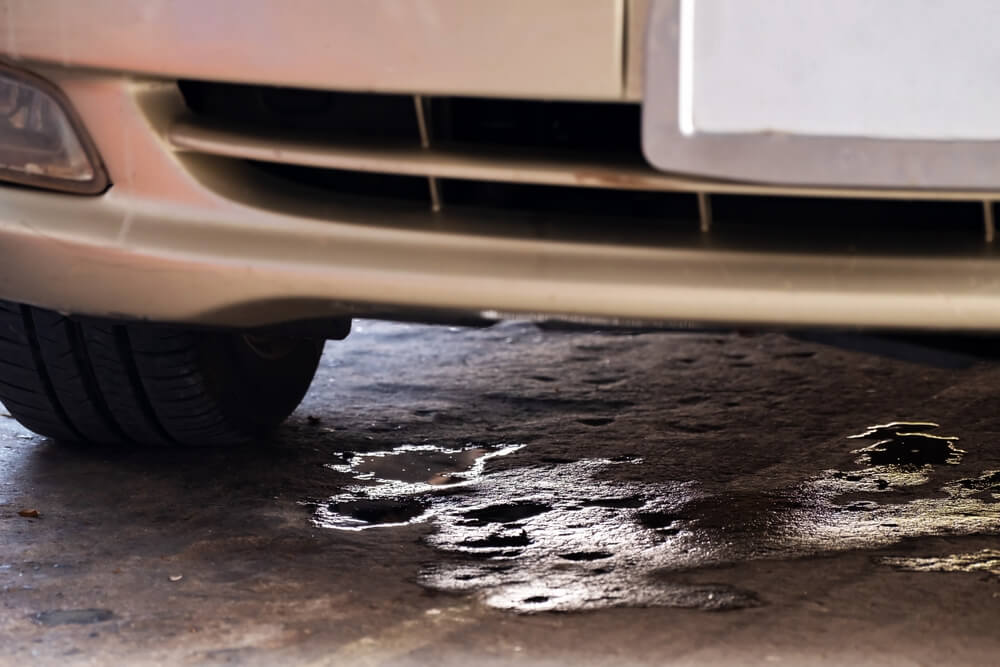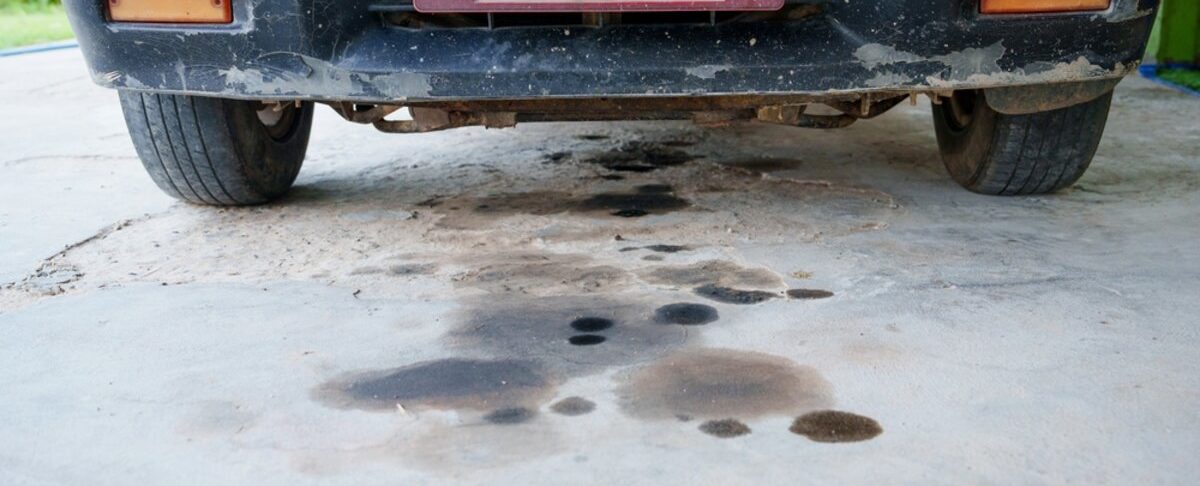Concrete garage floors are known for their durability, but they’re also prone to stains from various substances. Oil, grease, paint, rust, and even mold can leave unsightly marks on the surface, making it seem like the floor is beyond cleaning. But don’t worry, removing these stains is possible with the right techniques and a bit of effort.
Identify the Type of Stain On The Concrete Garage Floor
Before starting, it’s essential to identify what kind of stain you’re dealing with on your concrete garage floor. Different types of stains require different cleaning methods and products. Here’s a breakdown of common stains found on garage floors:
- Oil and grease stains
- Rust stains
- Paint stains
- Mold and mildew stains
- General dirt and mud
Once you’ve identified the type of stain, you’ll be ready to choose the best cleaning method.
General Cleaning for Stains on Concrete Garage Floors
Same with a concrete driveway, before diving into more specialized stain removal methods, it’s a good idea to start with a general cleaning of your garage floor. This step will remove dirt and grime, which can sometimes be mistaken for stains. Here’s how to do it:
Materials Needed
- Broom or vacuum
- Mop or large scrub brush
- Bucket
- Mild detergent or concrete cleaner
Steps
- Start by sweeping or vacuuming the garage floor to remove any loose dirt or debris. Be thorough in the corners and edges, where dust tends to accumulate.
- Next, fill a bucket with warm water and add a mild detergent or concrete cleaner. Mop the floor or scrub the surface with a brush, paying extra attention to any areas that seem dirtier.
- After scrubbing, rinse the floor with clean water. This will ensure that any residue left from the detergent is washed away.
Once you’ve done this, you’ll have a clean surface and a clearer idea of where tougher stains remain.
Oil and Grease Stains On Concrete Garage Floors
Oil and grease are probably the most frustrating stains to deal with on a concrete garage floor, but with the right approach, they can be eliminated.
Materials Needed
- Cat litter, sawdust, or cornstarch
- Dish soap or degreaser
- Scrub brush
- Hot water
Steps
- If the stain is fresh, start by absorbing as much oil as possible. You can do this by covering the stain with cat litter, sawdust, or cornstarch. Let it sit for 15 to 30 minutes, then sweep or vacuum it up.
- After absorbing the oil, apply dish soap (or a degreaser if you have one) directly to the stain. Dish soap works well because it cuts through grease. Use a scrub brush to work the soap into the concrete.
- After scrubbing, pour hot water over the area and scrub some more. Rinse with clean water and check if the stain has lifted.
- For stubborn stains, repeat the process a few times. You may need to apply a stronger degreaser or even rent a pressure washer for persistent grease marks.
Rust Stains On Concrete Garage Floors
Rust stains can form when metal tools or objects are left on concrete floors, especially if the floor is damp. Removing rust from a concrete surface requires a different technique.
Materials Needed
- White vinegar or lemon juice
- Baking soda
- Scrub brush
Steps
- Soak a cloth with white vinegar or lemon juice and place it on the rust stain. The acid will help break down the rust.
- Allow the vinegar or lemon juice to sit for 10 to 15 minutes.
- After soaking, sprinkle baking soda over the rust stain. The abrasive action of baking soda combined with the acidity of vinegar will help lift the rust.
- Use a scrub brush to work the mixture into the stain. Scrub in circular motions, then rinse with water.
Repeat the process as needed for tougher stains. In extreme cases, you might need a commercial rust remover.
Paint Stains On Concrete Garage Floors
Paint stains are tough, but not impossible to remove. Whether you spilled paint during a DIY project or have splatter marks, these stains require a bit of patience.
Materials Needed
- Paint thinner or rubbing alcohol
- Paint scraper
- Cloth
- Scrub brush
Steps
- Use a cloth to apply paint thinner or rubbing alcohol to the paint stain. Let it sit for 10 to 15 minutes to soften the paint.
- Once the paint is soft, use a paint scraper to gently scrape the paint off the concrete. Be careful not to damage the surface.
- If some paint remains, scrub the area with a brush and more paint thinner or rubbing alcohol.
- After the stain is gone, rinse the area with clean water.
For stubborn paint stains, you can also try a pressure washer or a specialized concrete cleaner.
Mold and Mildew Stains On Concrete Garage Floors
Mold and mildew can develop on concrete floors, especially in damp areas. These stains need to be treated carefully to prevent further growth.
Materials Needed
- White vinegar or hydrogen peroxide
- Scrub brush
Steps
- Pour white vinegar or hydrogen peroxide onto the mold or mildew stain. Let it sit for 10 to 15 minutes.
- After the solution has soaked in, scrub the stain with a brush.
- Once the stain is gone, rinse the area with water and dry it thoroughly. Consider improving ventilation in the garage to prevent future mold growth.
Prevent Future Stains On Concrete Garage Floors

After removing stains, it’s important to take steps to prevent new ones from forming. Consider applying a concrete sealant to protect your floor from spills and stains in the future. Additionally, regularly cleaning the floor and addressing stains as soon as they occur will help maintain its appearance. If you are in need of any concrete garage floor services, contact Richfield Blacktop today.




